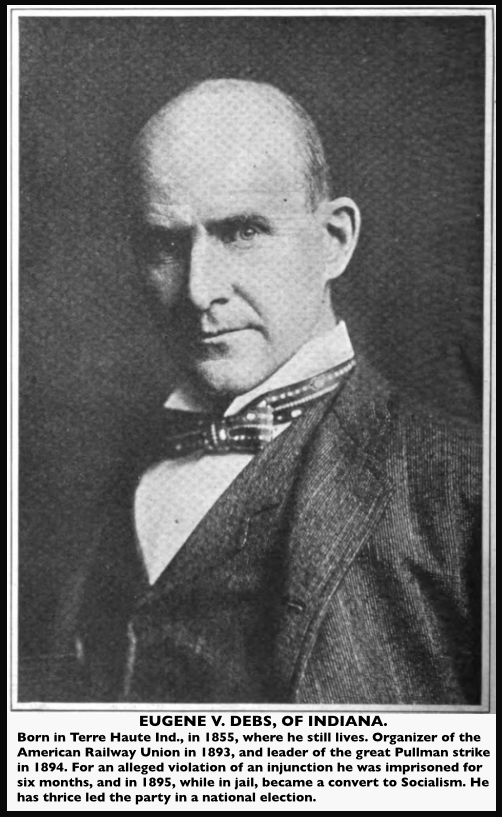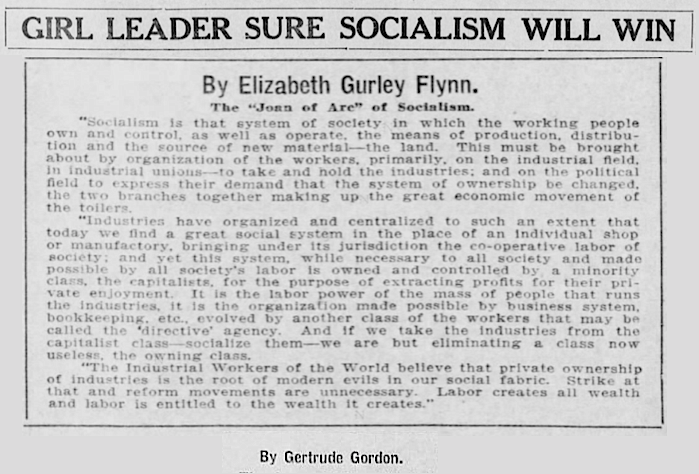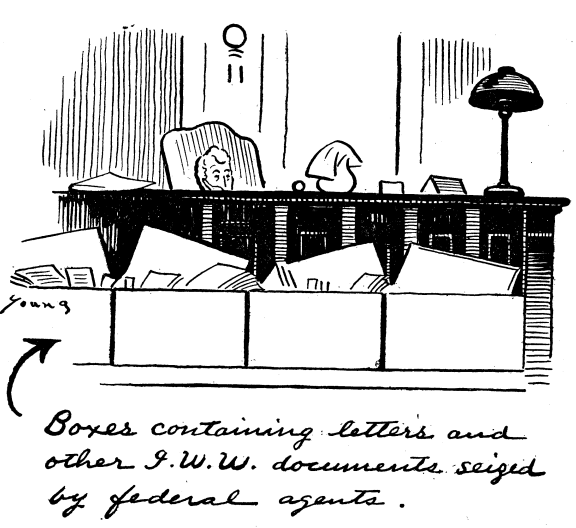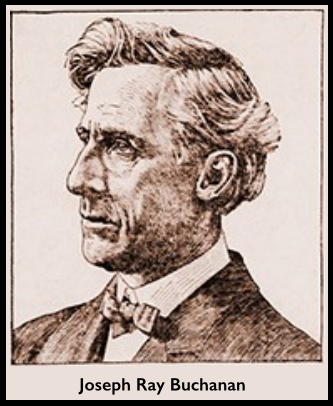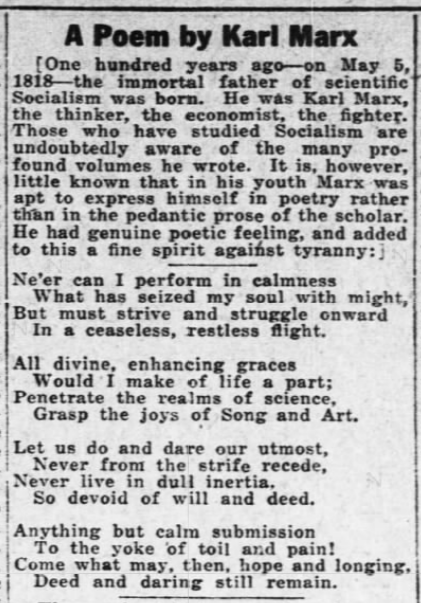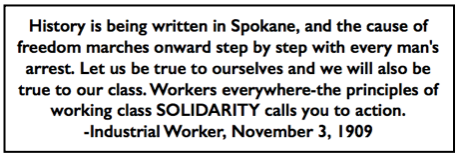 ———-
———-
Hellraisers Journal – Friday February 25, 1910
Spokane, Washington – Facts of Free Speech Fight from J. C. Knust
From the Seattle Socialist Workingman’s Paper of February 19, 1910:
FACTS SUPPRESSED in SPOKANE
—-
By J. C. Knust, of Spokane
EDITOR’S NOTE.-Here we give yet another dose of FACTS to the sick Spokane authorities. It is killing testimony, and until the record is disowned officially it will damn Spokane in the eyes of the whole world.
The second round in the fight against the Working class is now being fought by the city authorities of Spokane, backed by the employment agencies and other expressions of corporate rule.
Spokane is the natural and the principal distributing point of labor and its supplies to the great Northwestern lumber regions, agricultural districts and mining camps.
Spokane, being a comparatively young city, is necessarily under heavy expense, and, like many young cities in the past, through their spasmodic growth, has given undue power to certain official individuals, who sometimes make, either wilfully or maliciously, grievous mistakes in the use of such power in order to serve private interests.
In order that the reader may get a fairer and more clear conception of the immediate cause of this fight of the workers to maintain their rights, it will be necessary to begin at the beginning.
Every year thousands of men are sent out by the employment agencies to all parts of the country, through faked advertisements, to work which does not exist. For many years these licensed thieves have reaped in this way a rich harvest. Men would come here, buy a job and ship out. Some would find work for only a week where they expected to find steady employment. Others found no work at all.
Investigation proved often that employers, foremen and agents were dividing spoils, their fee being anywhere from $1 to $15 for jobs. After a few days work these men would be discharged and another crew would be sent to fill their places, thus keeping three crews-one going, one coming and one working. [Perpetual motion!]
Can you suggest anything for these men to do but to organize to do away with such thievery? No redress was to be had from the courts, the city attorney saying, “Nothing can be done,” showing plainly that there is plenty of “law,” but it is not for the benefit of the masses.
These conditions grew to be intolerable. One office alone in this benighted town boasts proudly of having sent out in one year 85,000 men. Think of it! Out of that number there were less than 1 per cent. who actually found remunerative employment. And again consider that there are many of these slave markets here, and all doing a thriving business.
Then these men grew desperate; something had to be done. So about two years ago they began to organize themselves into one union known as “The Industrial Workers of the World,” one object being to educate its members to buy no more jobs, but compel employers to come to a union headquarters for their men, where no fee would be charged.

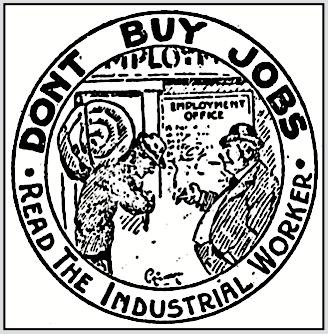
 ———-
———-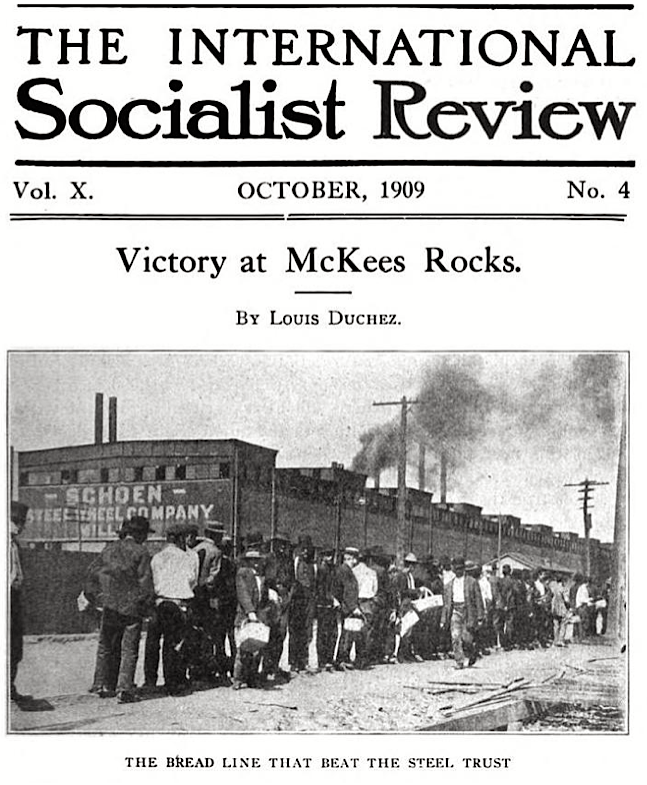
 N this article the writer is not going to give much space to a recitation of the crimes of the capitalist class at McKees Rocks and the other strike points in Pennsylvania. It is unnecessary. The capitalist press has done that more effectively—regardless of the motives that may have prompted them—than he is able to do. The class struggle is a historic fact and the diametrically opposed interests have long ago been proven. Such practices as were exposed during the last few weeks are only the logical result of the capitalist system of society at this stage of working class activity.
N this article the writer is not going to give much space to a recitation of the crimes of the capitalist class at McKees Rocks and the other strike points in Pennsylvania. It is unnecessary. The capitalist press has done that more effectively—regardless of the motives that may have prompted them—than he is able to do. The class struggle is a historic fact and the diametrically opposed interests have long ago been proven. Such practices as were exposed during the last few weeks are only the logical result of the capitalist system of society at this stage of working class activity. ———-
———-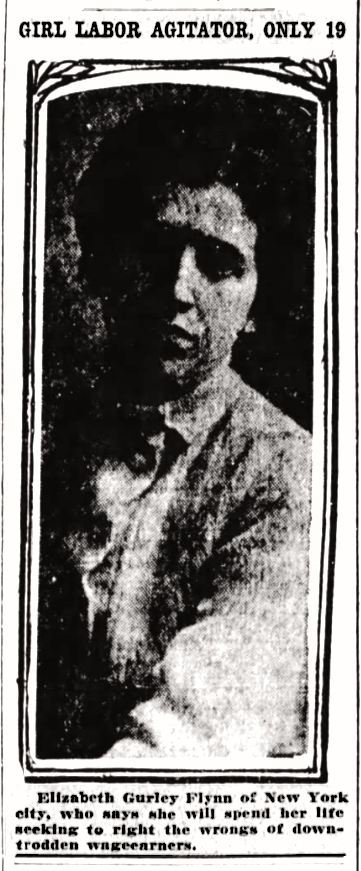
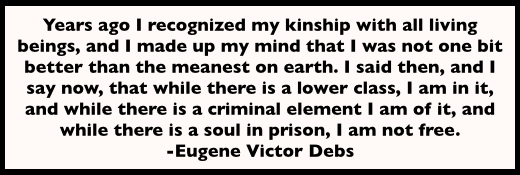 ———-
———-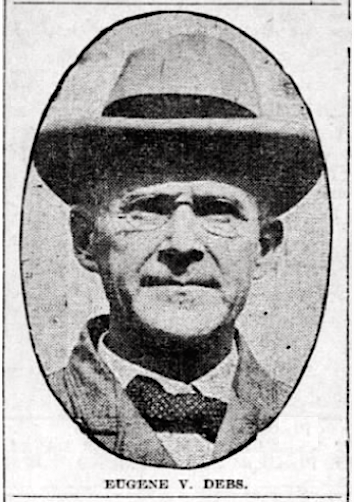

 ~~~~~~~~~~~~~~~~~~~~~~~~~~~~~~~~~~~~~~~~~~~~~
~~~~~~~~~~~~~~~~~~~~~~~~~~~~~~~~~~~~~~~~~~~~~